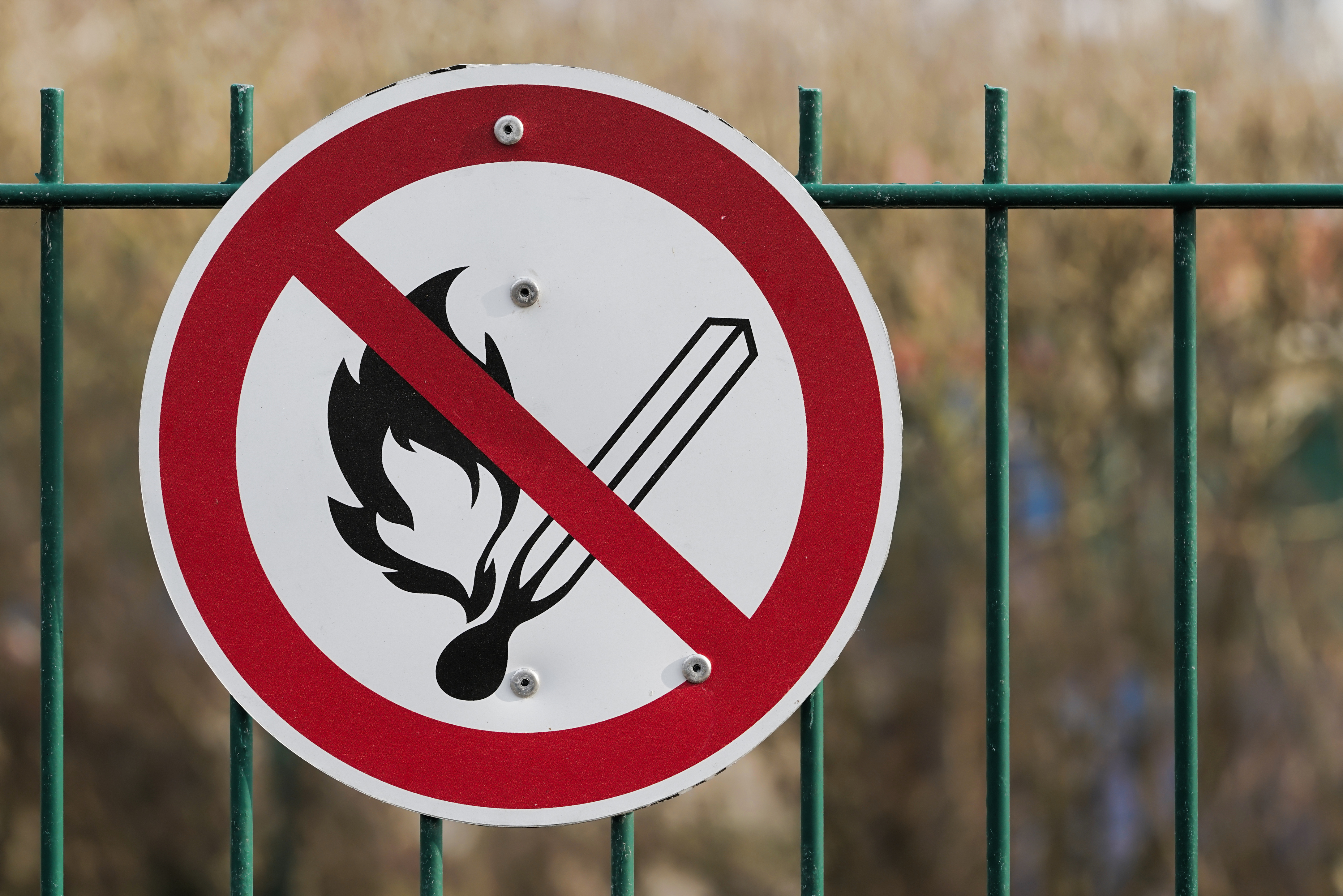General Insurance Blogs, Articles & Updates by - Magma Insurance
Have us call you
- RENEW YOUR POLICY
- BUY NEW POLICY

Six best tips for the newcomers in fishing
Fishing is an easy sport that can be enjoyed by people of all ages. Many people like to camp near fishing sites and spend time with family and friends. The excitement of holding the rods and attempting to catch a fish and cook it into a delectable dish is a joyful experience.
While fishing is a simple sport, newcomers interested in trying their hand at it might find it difficult to get started. Catching the first fish is a memory to cherish throughout your life, and this blog will help you accomplish that.
Let's discuss the six best tips for newcomers to get started with fishing easily.
1. Research:
It would be best to do some research before heading straight to the pond with your fishing rod. Get a general idea about fishing. Read some books on the basics of fishing to understand the process. You may even watch a few tutorials online to clear the fundamentals of preparing the rod, using the bait, and understanding the techniques involved.
2. Basics:
After you are done with your research and are familiar with the terms and equipment used in fishing, you can get started by understanding the basics and pre-fishing tasks. For example- you can learn how to put baits on the hook, tie knots, etc.
3. Bait:
You need to know about the various types of baits that attract different fish. For example, raw chicken liver attracts catfish. Adding the wrong bait can make it difficult to catch a fish. So acquaint yourself with the proper knowledge about different types of fish and the tricks used to catch them.
4. Location and weather:
Be mindful while choosing a location for your fishing trip. Look up the site on the internet and learn more about the water bodies and the types of fish that might be available (if any). A cloudy sky is considered to be the best weather for fishing. You can also catch fish in other weather conditions, but an overcast sky speaks magic comparatively. If you are not aware of the proper conditions for fishing, it could be a disappointing experience not to find anything to catch.
5. Apparel:
You need to dress for the occasion. In the case of fishing, wear boots since there is a slight chance that you might have to (or by accident) paddle into the water while catching a fish. Dressing according to the weather would make the fishing experience better for you. Wear layers if it is cloudy and chilly. Tie your long hair into a ponytail to avoid getting distracted.
6. Bug spray:
Make sure that you carry bug spray. The places around these water bodies tend to have a lot of bugs and insects (mainly mosquitoes), which might cause trouble while fishing and can get you sick if you are not careful. Using an itch-free bug spray is advisable for a comfortable fishing experience.
That's a wrap on the six best tips for newcomers in fishing. You have to be quiet around the edge of the water bodies to catch fish efficiently. Even a slight mistake can be risky and may land you into unwanted trouble. So, get the best personal accident insurance India to protect yourself against any unfortunate incidents and make your fishing experience a memorable one.
Click HERE to know more about how you can buy the best personal accident insurance India.
Disclaimer: The information provided above is for illustrative purposes only. To get more details, please refer to policy wordings and prospectus before purchasing a policy.

A complete guide for first time commercial vehicle buyers
Whether you're looking to purchase your first pickup vehicle, minivan or heavy-duty truck, there are several aspects to consider beforehand. The process of buying a commercial vehicle can be daunting for first-time customers. An excellent place to start is to gain enough basic knowledge about trucks to understand how they will meet your requirements. In contrast, existing truck owners should focus on increasing the benchmark performance of their present fleet.
If you fall in either of the categories, here are some pointers to help you while buying a commercial vehicle.
1. Research your way into it:
Regardless of your level of knowledge about commercial vehicles, most showrooms would be happy to assist you. However, doing some comprehensive research as part of the purchase process will help you better understand commercial vehicles before going to a dealer.
Talk to people in your known circle who own commercial vehicles. Find out what goes into daily and long-term maintenance, and get details about performance and cost. Read through buyer reviews and do plenty of research online.
This may appear a tedious task, but buying a commercial vehicle is a significant investment. If you go for the wrong product, it can cost your company in the longer run.
2. To help you make a better decision, ask yourself these questions:
What kind of chassis am I looking for?
Chassis is your vehicle's structural backbone. Fuel will be wasted if you use a chassis that is too large for your needs. On the other hand, a tiny chassis might cause your vehicle to get overloaded, requiring you to make additional trips, wasting time and fuel, and reducing efficiency.
How much power do I require?
When the vehicle obtains the best torque at a low engine speed, the overall fuel consumption is lower than when the engine is operating at maximum speed. So choose a vehicle with an engine designed to provide maximum torque at the speed at which the vehicle will primarily operate most of the time.
What type of tyres am I looking for?
Tyres support your truck in operating at its maximum design speed safely. When moving, they should provide as little resistance as possible. If your vehicle involves driving on high-speed routes, low-rolling-resistance tyres might be beneficial. For small trucks, remember that tyre maintenance is more important than tyre selection.
Which fuel will my truck need?
Although most commercial vehicles run on diesel, alternative options are gaining popularity due to growing fuel prices and environmental concerns. Hybrid electric engines can be helpful for trucks dealing with a large number of small deliveries.
An increase in fossil fuel prices may make these alternative fuels more tempting for your applications. Still, given the current market, you should do thorough research because these options have challenges, fewer refuelling or charging stations, to name one.
Purchasing a truck is a significant financial investment for anyone. A good vehicle can be your business's maker or breaker. It is an asset that needs regular servicing and maintenance to perform at its best. In addition to doing extensive online research for some valuable takeaways to buying a commercial vehicle, you also need to study online motor insurance that can provide financial cover to your vehicle against any mishap. While making the most impactful investment of your life, it is also crucial to get online motor insurance for your purchase to help you be carefree when it travels miles for your success.
To know more about online motor insurance plans for your next commercial vehicle, click HERE .
Disclaimer: The information provided above is for illustrative purposes only. To get more details, please refer to policy wordings and prospectus before purchasing a policy.

Here are five ways to make travelling fun with your pet
Having your furry friend accompanying you as a travel partner can be an exciting experience. When you have good company, the journey appears to be insightful. No trip is complete without the favourite member of the house! So, if you're planning a vacation, let your cute friend know that he's coming too.
People might think it's hard to travel with pets considering they might litter around or cause trouble for others. But, in reality, travelling with your furry friends can be one of the best travel experiences ever. With just a few tips and precautions, you can go on adventures with your pet and take your bond to greater heights.
We are here to offer you the top five essentials to make travelling fun with your pet.
1. Visit your vet before leaving:
Always consult your vet before leaving for the trip, especially if it is your pet's first long journey. Your pets might need some extra vaccination or require a health certificate for the travel. Check all the documentation from your vet mentioning your pet's proper health before starting a trip.
2. Practice can make your pet perfect:
A long-distance car ride for the first time can get them nervous. So it's better to take some shorter drives before the main trip to see if they are comfortable for long-distance. As they get used to the travel conditions, they start enjoying the little things. Try some commands and tricks to calm them in new public places and to avoid any mishaps with strangers.
3. Travel pack for your pet:
As you wish to have all the best things with you while travelling, so does your pet. Carry your pet's favourite toys and treats. This will make them the happiest even when they aren't able to do much while travelling. Pack ample food and water that will last the whole trip. Also, add a separate first aid kit for them. Be a responsible guardian and take the best care of your pet; you will find that it'll keep you entertained throughout your vacation.
4. Time for stretches and play:
All pets are hyperactive, and they can't sit still in one place for a long period. Stop at every 3-4 hours for them to stretch out and go for a bit of run. This will place their energy in the right direction, and they won't be jumping all over and creating chaos during the drive. They would love to have these sessions in between, making them bear long travel runs.
5. Maintain a pet-friendly environment:
Having an environment they can enjoy and be comfortable with is the most important thing for long journeys. While planning, choose hotels and restaurants that are pet-friendly to have the opportunity to socialize with others. As the most pet-friendly hotels get booked in advance, always have a prior reservation for your stay. While in the car, don't drive too fast as they quickly go through motion sickness.
All these tips will help you make your journey so much more fun and exciting for your pet. Along with that, keep a check on other minor details such as carrying pet seat belts, a first aid kit, and your pet's medical documents.
While you have to be a little extra careful about the well-being of your furry friend, ensure you have already guarded yourself against other travel-related worries like theft or damage to your baggage or a medical emergency during the journey. To deal with these unfortunate incidents, a general insurance company can be of great help. Magma HDI General Insurance company covers the losses amidst your travel plan so that you focus on playing and making memories with your pet.
Click HERE to know more about general insurances available.
Disclaimer: The information provided above is for illustrative purposes only. To get more details, please refer to policy wordings and prospectus before purchasing a policy.

Complete guide on how different colours can make your home alive
Multiple studies claim that the paint of your home plays a significant impact on your mood. When your eyes connect with various shades, your brain automatically releases different chemicals that enhance your mood.
Colour therapy plays a vital role in the healing process by making you more expressive and lively. For example, if your walls have dull tones, you will likely feel lazy, sleepy, or tired. Similarly, bright shades bring a freshness that cheers you up by making you feel energetic.
This blog will list how different colours used in your home can impact you and make your home feel alive.
1. Red for high energy and power:
Red signifies power and energy within you. Although a dark red would look awful on your wall, a lighter shade can signal courage, strength and promote alertness.
2. Lilac for calmness and relaxation:
Painting your room with a lilac shade will help you feel calm and relaxed. Imagine waking up with a feeling of peace and positive vibes surrounding you. It will mark the start of perfect daily mornings. That’s the power of Lilac!
3. Light green for positive energy:
Light green depicts the shade of nature and symbolizes peace, balance, refreshment, and reduces stress levels. Shades of green can go a long way to help you feel relaxed and stress-free.
4. Pink for happiness:
Pink is highly recommended for bringing a feeling of happiness and joy. You can paint your room pink, indicating the positive energy around. However, pink carries a misconception that it belongs to girls. But that’s not entirely true. Pink is a vibrant colour and has shades that are considered gender-neutral.
5. Cheer up your mood with yellow:
Yellow is widely known for its cheerfulness, simplicity, and elegance. Even though yellow may not be an ideal choice for many people, you can use it to paint your cabinets and other furniture attachments in the kitchen to add a bit of spring. Now imagine waking up to make your coffee and feeling enchanting around!
6. Violet for increasing artistic ability:
Violet stimulates our brain’s problem-solving capacity and promotes artistic ability. Both teenagers and adults prefer violet for its calming, creative promotion, and deep feeling. However, note that overusing a colour may result in suppressing emotions and feeling insecure. So when choosing violet, ensure limiting the quantity.
7. Blue for rest:
The colour of the sea and sky promotes a feeling of renewal. Curling up in your bed with a beautiful blue shade around your room can help in eliminating insomnia and induce deep sleep. Blue is usually known as “cool colour”, making you feel rejoiced and relieved.
8. Warmth of orange:
Orange promotes joyfulness, cheerfulness and invokes feeling emotionally intense. For relationship building and encouraging interaction, orange can be a perfect fit for your bedroom.
Wrapping Up!
“Colour is a power which directly influences the soul” – this insightful quote of Wassily Kandinsky depicts how different colours reflect on our day-to-day life. Happy, calm, cheerful, or motivated? You’ve got a handful of options of the colour pallet to select for your home.
While the colour of your home can affect your mood, it is essential to coordinate other aspects too. Along with appearance, it is also essential to cater to the security of your home. The gleam of beautiful walls and attractive ambience can be an open invitation to the thieves. So instead of worrying, relax and get a shade of home insurance for your home to make it secure.
Click HERE to know more about the home insurance plans that best fit your requirements.
Disclaimer: The information provided above is for illustrative purposes only. To get more details, please refer to policy wordings and prospectus before purchasing a policy.

Twenty-one handy tips to protect your home from burglary
Problems come uninvited, so do thieves. While modern technology makes it safer than before, no homes can be declared as "burglar-proof". The skills of burglars are advancing too with time. So, to avoid clever thieves from attacking your house and stealing valuables, you need to take considerable precautions. Below are the twenty-one tips to prevent burglary at your home so that you feel guarded.
1. Get a pet dog to guard your home: Most common and convenient option is to get a pet and train it to safeguard your home. Believe it or not, most thieves are badly scared of dogs!
2. Keep your spare keys in a place known only to you: Unlike old times, you cannot keep your spare key under a flowerpot or doormat. Unsurprisingly, invaders are aware of this trick. So, it is advisable to keep your keys at some safe place, or you can hand them over to your trustworthy neighbours till you return home.
3. Keep your car keys accessible to you: At the time of intrusion, you can make them scared by pressing the car alarm with your keys.
4. Always use the peephole before opening the door: Use the peephole to see who's outside, confirm the unknown person's identity, and then only open the door.
5. Draw curtains and blinds: Surely you won't like to give some stranger an option of window shopping to your home. To ensure privacy inside your house, make a habit of drawing curtains and blinds.
6. Be a friendly neighbour: A neighbourhood watch is one of the best ways to protect your home. Protect their home when they are not around and request them the same when you are away for a long period.
7. Install security cameras for surveillance: Make this one-time investment in installing CCTV outside your home premises. No invader will break in quickly.
8. Keep your valuables safe: Considering the worst case, even if the intruder breaks into your house, make sure that your valuables, essential documents, and ornaments are in a fireproof and password-protected safe or locker.
9. Hide expensive items: Don't keep your expensive items like jewellery, watches etc., at bay where everyone can see them. It's easier for visitors and strangers to scan through while you open the door for them.
10. Install a video doorbell camera: It is a modern-day alternative to the peephole, providing a better and broader view and a clear channel for communication.
11. Keep multiple layers of defence: Using a single door is not safe. Keeping fences, external gates on the entrance further prevent invaders.
12. Shift your door hinges: Doors having hinges outside are highly vulnerable. Anyone can break in with simple tools. So, make sure hinges are inside the home.
13. Shine a light of security: Having a light outside the home and keeping the gate well-lit makes burglary less possible. Burglars usually try to avoid attacking homes that have lights on!
14. Keep the external switches and wires covered: The invaders will likely break in after cutting the cables and CCTV camera connections. So, ensure that all the cables are covered safely and not visible to intruders.
15. Timely update and upgrade doors and locks: Old doors and locks are easily breakable and cannot provide durability. Update your locks and doors from time to time.
16. Use multiple locks: Like multiple doors, use multiple locks for additional protection.
17. Secure the windows: The window is a familiar and most found intruding means by which burglars break-in. Make it safer by using good quality windowpanes, glasses, and handle locks.
18. Declutter your door: When you are not at home, ask your neighbours or inform some friend to empty your garbage bin, collect your daily newspapers or any parcels and packages dropped at your doorstep.
19. Keep security signboards: 'This property/home is under the surveillance of CCTV.' Such signboards will easily break the will of an intruder, preventing them from entering your house.
20. Don't overshare or overexpose: Make wise use of social media. And don't overshare your personal information, things about the home, or any upcoming events and trips too. It might risk your home and privacy in the first place.
21. Get a home insurance plan: A good house insurance India plan guards your house against losses in case of a burglary. Your insurance company will reimburse the value of the lost items.
Phew! Many of the above tips will save your home from burglary and make it secure inside out in your day-to-day life. The future of safe homes lies in home automation or smart homes. If you have a reasonable budget, you can also opt for such options. However, thinking of additional protection for a home is not a wrong thought. So, always invest in home insurance that provides you additional protection.
Click HERE to get the best home insurance India for your home.
Disclaimer: The information provided above is for illustrative purposes only. To get more details, please refer to policy wordings and prospectus before purchasing a policy.

5 myths of Home Insurance
Home insurance is one of the most common insurance that people buy, but most of the buyers do not know about the complete limitations and benefits of such insurance policies. There are certain myths related to home insurance policies that are still prevailing in people’s minds. You can find a person buying the best home insurance in India, but he/she will be under the myth that the insurance policy does not cover this or that. People need to properly read the offer and scheme related documents before they are deciding on buying any particular policy. Some of the myths that have been there in people’s minds for long periods have been debunked here: -
1 If the damage to the home is severe enough that it is beyond repair and you cannot live in it while it is being repaired or renovated, the insurance company will put you up in a hotel or a serviced apartment temporarily while the work is being done. This is true for some insurance plans but not all insurance plans and if loss-of-use is there, it will be clearly stated in the policy. People should not be under the myth that Loss-of-use is present in all policies else they will have to bear a huge financial burden of paying the hotel fees as well.
2.Many people believe that their belongings lost in the fire will be replaced with new ones if they have a policy. However, most of the policies do not have this clause. Instead, the losses are calculated by what the items were worth before they were lost in the fire. A four-year-old computer that you bought for Rs. 50,000 may be worth only Rs. 13,000 before the calamity and the insurance company will calculate the loss by counting the price of the computer as Rs. 13,000 and not the original price of Rs. 50,000.
3.Even the plan which may be the best home insurance in India may omit coverage against flood. Floods can occur due to several reasons, such as a storm, hurricane, ruptured pipes or drainage stoppages, or ruptured sewer backup but most of the times flood is not included in the policy. If you live in a flood-prone area, there are special flood policy packages offered by selected firms but in general, it is not included in a home insurance policy.
4.People generally believe that low premium means low insurance coverage, but this is not true. You can lower your premium in many ways without reducing your coverage if you take safety precautions of your own to protect your house. If you have security devices such as fire alarms or burglar alarms installed at your house, you can tell that to the insurance provider, and your premium can be lowered.
After the fire tragedy, some items are destroyed or damaged to such an extent that for the insurer, it could be challenging to identify for assigning the claim. So, as a responsible party, you ought to click as many pictures and shoot videos as possible of the damaged, smoked rooms to show the physical evidence of the actual damage before it gets wiped by a restoration company.
5.This is a myth that you need to be a homeowner to buy home insurance. You can very well buy home insurance for your belongings and contents of the house without being a homeowner. A tenant can purchase home insurance for his belongings and in case the tenant shifts; the policy can be approved for a change of address as well. Not only this, but the homeowner can also get home insurance for the structure of the rented accommodation or the house in which there are tenants living.
While buying even the best home insurance in India, you need to be careful and read all the documents for the policy carefully to understand what all things are included in the insurance and what all things are not included in the insurance. Different policies are accommodating different perils and you must choose the one that fits your requirements the best.

10 useful fire safety tips that you should know
A fire can start anywhere and you will be surprised to know that you may have as little as two minutes to escape from such fires to safety. Early warning signs and proper steps taken once the fire has been detected can save your life as well as others. Most of the home fires that occur are preventable and you should follow certain fire safety tips to protect yourself as well as your family from fire hazards.
Buying home fire insurance is the first step towards protecting your house from an unforeseen fire hazard that may destroy your complete property. But along with this, you need to know some safety tips to protect yourself if and when there is a fire outbreak in your home or office or any other such building.
- Smoke alarms are the basic detectors that must be installed within the building so that you are immediately aware of if there is some fire in your house. Such fire alarms can be installed in your living room and all of the bedrooms. Installing fire alarms does not finish your job and you need to take care if they are working properly by regular checks. You may even need to replace their batteries periodically.
- Have a fire escape plan ready and your whole family should be aware of what to do to escape from the house in case of a fire outbreak.
- In case there is a fire in your home, try to escape as quickly as possible and do not go back to your house to gather any belongings. If your house is insured under home fire insurance, you will get everything back.
- If you live in an apartment, get to know all the escape routes and as soon as there is a fire outbreak, pull the fire alarm so that everyone else is aware of a fire in the apartment.
- In case there is a fire in your home, lie down close to the floor because smoke tends to rise higher. You can save your breath this way and can be safe inside the room for a longer period until help arrives.
- If you are locked inside in case of a fire, try to block all paths of the smoke entrance to your area. You can get any clothing material and place it at the entry point of smoke which is generally the bottom of doors. The wet cloth will prevent smoke from reaching your area and you will be able to survive for a longer period until help comes.
- All the inflammable materials in your home should be handled carefully and must be put in a safe place. In case there is a fire outbreak, try to keep flammable materials out of the reach of the fire, otherwise, they may cause an explosion risking everyone’s lives.
- In case you use fireplaces inside your home to warm the house in winters, install a fire safety gate around the fireplace.
- Fire extinguishers are a must at office places, but there must be fire extinguishers at your home also. Everyone in your family should be trained enough to use the fire extinguisher in case the need arrives.
- In case your clothes catch fire, do not run because running won’t douse the flames, instead, it will only help the flame. Lie down and roll on the ground and the flames must be smothered by a heavy blanket or rug.
All these tips can come in handy whenever there is a fire outbreak in your home or your office. You must follow these tips, but you must never forget to call the fire department to let the professionals handle the fire hazard.

Home Buyer's Guide
Owning a home is generally seen as a sign of adulthood and financial responsibility. Buying a home is a huge step and a very big commitment and requires a lot of work on your part. You need to be aware of all the different things and steps involved with everything to fully comprehend what all things need to be taken care of before you buy a home such as EMI payments, property tax payments,best home insurance policies in India and several others. Many people rush into buying homes which is never a good idea because if you are not careful while buying a home, there is a probability that you may be making a bad investment.
When buying a home, you need to be sure that you can sustain the financial burden and it won’t mess up your financial stability and for that, you need to understand the various aspects of homeownership. You can consider this as a guide which will help you in making a correct decision that will be beneficial for you in the long run as a good investment. Going step-by-step, you need to ponder over carefully on all these things: -
- The need to buy the property - Many people decide to buy a home just because they want to prove to the world that they have attained adulthood and they can own a home. The decision to buy a home should not be made so precariously and proper thought must be given to whether you need to buy a property and how will it affect your financial stability in terms of mortgages.
- Shortlisting the Property - Once you have properly assessed your requirements for a property, you need to now ponder upon what kind of home would you like to live in. Shortlisting can also be done based on whether you want to move in immediately or you want to construct the house according to your preferences. Ready to move in property generally require enough finances for paying cash up-front to buy them but for a house under construction, you can take bank loans while paying less cash up-front. The property should also be shortlisted based on what kind of location you want to live in.
- Understand the tax implications - Everyone wants to reduce their taxes, and for this, you need to understand what kinds of taxes you have to pay and how can that tax be reduced smartly. You can save capital gain tax on residential properties but not on commercial properties.
- The Legal Perspective - Once you have decided on buying a property, take care of all the legal things that need to be done so that the property is registered under your name or someone in your family. All the documents should be clear, and you should be comprehensive with regards to all the paperwork for the property to avoid any issues in the future.
- Manage Finances - You need to have a stable financial system so that you do not face any difficulty in your daily life after deciding to buy a new property. You can also avail home loans from banks to finance the new property by paying less cash upfront to the developer of the property. Your home loan eligibility and the amount for which your home loan is sanctioned depends on your ability to repay the loan, i.e. indirectly your salary..
Home buying is generally categorized into three different stages which are the Pre-purchase stage, financial handling stage and the Post-purchase stage. You need to be properly involved in all of these stages and understand each and everything so that you do not face any legal problems in future.
Make sure that all documents are complete and if you rent out your property, have proper rent agreement papers made. Buying a home also means you need to have home insurance, and you can buy some of the best home insurance policies in India from different insurance providers at attractive premium rates. Compare the policies properly and buy the one that suits your requirements the best.

